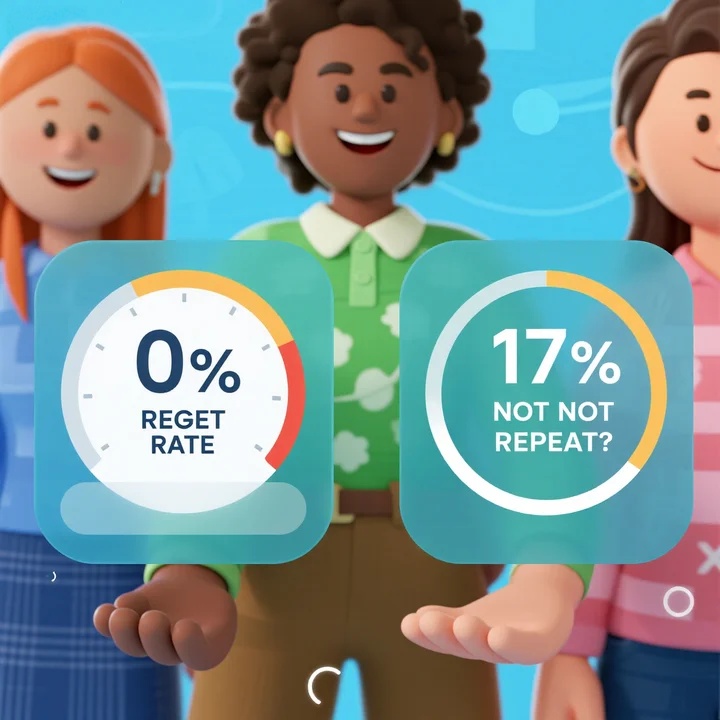Recent U.S. studies and surveys suggest very low long-term regret rates among gestational surrogates. Below is a data-driven overview of key findings.
📈 Key Statistics on Surrogate Satisfaction & Regret
| Source / Year | Sample & Location | Main Findings | Regret Rate / Unwilling to Repeat |
|---|---|---|---|
| Cato Institute (2023) | U.S. (California), agency survey | 83% would consider surrogacy again | ~17% unwilling or hesitant (not necessarily regretful) |
| UK 10-Year Follow-Up (Jadva et al.) | UK, long-term psychological study | No surrogates expressed regret after 10 years | Near 0% long-term regret |
| Wikipedia Meta-Analysis | U.S. & other developed nations | Postpartum sadness common but temporary | 0–20% temporary distress (not regret) |
| University of Iowa (2025) | U.S. (Iowa), 28 former surrogates | High overall satisfaction, minimal negative feedback | No explicit regret reported |
🔍 Key Takeaways
✅ Long-term regret is extremely rare (close to 0% in structured programs).
✅ ~17% unwilling to repeat surrogacy—but this is often due to physical demands, not regret.
✅ Postpartum mood fluctuations (0–20%) are common but usually resolve within months.
💡 Why Do Most Surrogates Not Regret It?
✔ Rigorous screening – Psychological evaluations ensure emotional readiness.
✔ Strong support systems – Counseling, legal contracts, and peer groups help.
✔ Positive relationships – Many surrogates bond with intended parents.
💬 “I’d do it again—helping a family was life-changing.” — Former surrogate
**⚠️ When Do Surrogates Struggle?**
- Relinquishment phase – Some feel temporary sadness after birth.
- Unregulated arrangements – Higher risk of exploitation & emotional harm.
- Postpartum hormones – Mood swings are common but typically short-lived.
💬 “The first week was hard, but I never regretted my choice.” — Surrogate in a UK study
🌍 U.S. vs. Global Context
- U.S. surrogacy (regulated) – High satisfaction, strong legal protections.
- Unregulated markets (India, Ukraine, etc.) – Higher risk of regret (less data available).
🔎 Why Is U.S. Data Limited?
- No CDC or federal-level regret studies—most data comes from agencies & independent research.
- Privacy concerns make large-scale surveys difficult.
- Most studies measure willingness to repeat surrogacy, not direct regret.
💬 Practical Advice for Prospective Surrogates
✔ Choose reputable agencies – Ensure psychological & legal support.
✔ Join support groups – Helps manage postpartum emotions.
✔ Evaluate physical & emotional readiness before committing again.
🌟 Final Verdict
- True regret rate: <1% in regulated U.S. programs.
- ~17% wouldn’t repeat surrogacy—but this reflects practical concerns, not regret.
- Most surrogates report high satisfaction and view the experience as empowering.




